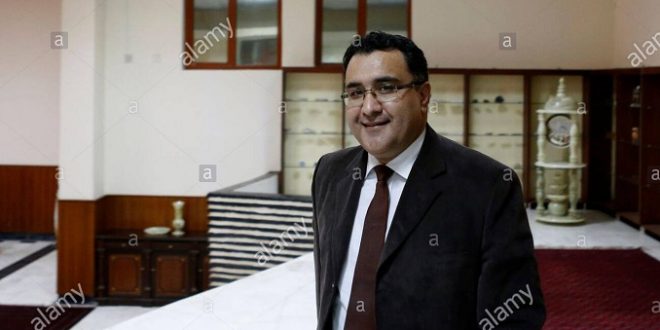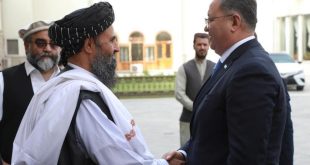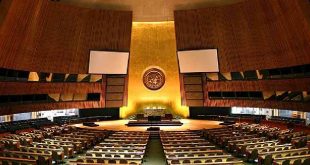By Jamshid Fedaie
I found out after collecting information from different sources that a false file and trial of former mines and petroleum minister, Wahidullah Shahrani has had different dimensions:
In September, 2018, the Supreme Court asked Wahidullah Shahrani to go to the court. Shahrani met Zaman Snagari, Barat Ali Matin and Abdul Hasib Ahadi, three members of the Supreme Court there who gave him the copy of litigation letter they had received from the attorney general office in which Shahrani was charged for misuse of his authority while in office as minister of petroleum and mines on contracts of Herat cement factory and the Pahlavanan coal mine there in 2011.
The letter was full of false information about Shahrani’s reputation as well as frank violations of the law, for example; Shahrani was never investigated before and was not told that he was charged. The case was clearly forged based on political motivation.
Shahrani and his advocate protested the litigation letter according to law and the court’s authority and sent his protest through a letter to the Court. The Court returned the litigation letter to the attorney general office after reading Shahrani’s objection, but the latter sent it back to the court without contacting Shahrani or his lawyer to complete the case.
The court members met Shahrani and his lawyer in December and informed him that the letter was sent back to them, expressing unhappiness about the attorney general office’s carelessness. The court members called for a short meeting to put an end to the repetition of attorney general office’s carelessness and that Shahrani’s lawyer would get the chance to reject all the charges based on the law and prevent such illegal disturbances in the future. Shahrani agreed on a meeting to be enlightened about the charges and called on the Court trough a letter to hold a session.
The first session of judicial hearing was held on Sunday, December 27 in which attorney general’s all illegal acts were unveiled. In the second session held on Wednesday, December 30, all incorrect charges made by the attorney general office were disclosed and it was revealed that the body knew nothing about the mines’ law, mining regulation, the procedures of ministry of mines and petroleum as well as the cabinet approval of the Herat cement factory’s contract in 2011 based on which the ministry was ordered to sign the contract.
The Court said it would announce judgment on January 2, but three members of the court first went to Chief Justice Yousuf Halim’s office to tell him two things:
First, the session of judicial hearing was over and the result was in favor of Shahrani and would reject incorrect charges made by the attorney general office and the judgment was written as it needed to be written.
Second, the judges asked chief justice to meet Shahrani if he had time in his office to thank Shahrani for paying respect to the Supreme Court and for attending the court’s two-day long session.
Halim immediately said that this was a sensitive issue and he needed to ask President Ghan. Mr. Halim trampled the judiciary’s independence and called Presidential office sharing the matter with an aide of Ghani for instructions. President Ghani called him back 30 minutes later and ordered him angrily to sentence Shahrani for 13 months in jail and 1.5 million dollars fine. Halim wrote the orders on a piece of paper right away and gave it to three judges to announce, but the judges resisted against the order with legal arguments that Shahrani’s every act was right and legal in the ministry of mines and petroleum. Finally, the three judges went to the main hall under Ghani’s heavy pressures. They ignored their judgment and reluctantly and angrily read what Ghani had told them within 45 seconds.
All preparations such as bringing tens of police and armored vehicles etc. to take Shahrani were already made. Several people with military features but not dressed militarily entered the hall and filled the seats just a few minutes after the order was announced at 03:25pm. This was a surprising scene for the Supreme Court staff (about eight to 10 court staff).
Attorney General Farid Hamidi exposed at 11:00am on Monday, January 5 in a friendly conversation with one of his friends that Shahrani’s case was incomplete and they sent it to the Supreme Court without any legal justification. The revelation came after media reports about Shahrani’s imprisonment. Hamidi had said that judges in the Supreme Court were convinced that Shahrani’s all works in the mines and petroleum ministry were rightful and legal and rejected attorney general office’s charges. He had said that the judges were forced by President Ghani to change the judgment and Ghani himself ordered a 13-month jail service for Shahrani.
Now, some important questions come to minds:
First, why did attorney general Hamidi send Shahrani’s case to Supreme Court without asking Shahrani questions to complete it according to punishment law and the court authority law?
Second, why he never called Shahrani to go to attorney general office? Shahrani and his advocate called the attorney general office several times (met Hamidi twice and another prosecutor once) and asked them to speak about his case, but he was told that the issue would be talked at a proper time.
Third, who ordered Hamidi to forge that case? Why did he try to send the case to Supreme Court incomplete and against the law?
All the events show that Shahrani was ready to provide the prosecutors with all documents and evidences and the charges would have been removed if he was investigated. This was the reason that Shahrani was never investigated. There were six ministers’ signatures in the contract of Herat cement factory that was later confirmed in the cabinet meeting. Beside the six ministers, tens of other government employees had signed the contract, but poor Shahrani was the only target.
Another question is that why did the government choose Shahrani for its political plot? Was this because his harsh criticism about government’s act or his political dependence to a certain address?
These all will be clear in the next days, but what has already been clarified is that the judiciary system is not independent and is used as a tool for revenge from political critics of the government. This is a judicial tragedy that is impossible to compensate.
 Afghanistan Times
Afghanistan Times




